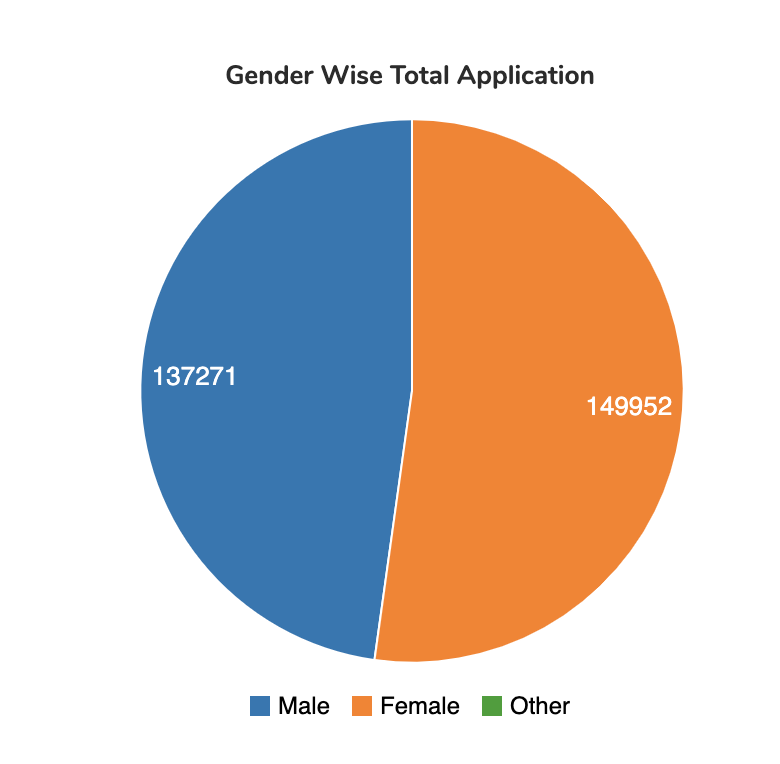New Delhi – The DU Admissions process for the current academic year has concluded its first round with mixed results, as Delhi University confirmed admissions for 62,565 students while approximately 12,000 undergraduate seats remain vacant across the institution. This significant number of unfilled positions highlights the complex dynamics of the university’s admission system and suggests that many prospective students are still evaluating their options or waiting for better allocation opportunities in subsequent rounds.
The DU Admissions first round has demonstrated both the popularity of certain programs and the challenges faced by the university in ensuring optimal seat utilization across all courses and colleges. The substantial number of vacant seats indicates that the admission process will continue to evolve through multiple rounds as students make final decisions about their academic futures.
Comprehensive Admission Statistics

According to official data from the DU Admissions office, the 62,565 confirmed admissions represent a diverse student body composition, with 34,014 women and 28,551 men securing their places in various undergraduate programs. This gender distribution in DU Admissions shows a slight female majority, reflecting broader trends in higher education participation rates across the country.
The DU Admissions process this year involved 93,166 total allocations made against 71,624 available seats across 69 colleges, indicating that the university implemented a strategic over-allocation system to account for expected student withdrawals and non-confirmations. This approach in DU Admissions helps ensure that seats are ultimately filled despite the complex decision-making process that students undergo when choosing their final college and course combinations.
Seat Vacancy Analysis and Explanations

The apparent discrepancy in DU Admissions seat calculations has been addressed by university officials who explain the complex methodology behind seat allocation and confirmation processes. According to mathematical calculations based on available seats and confirmed admissions, the number of vacant seats should theoretically be 9,059, but the actual figure stands at approximately 12,000.
DU Dean of Admissions Haneet Gandhi provided detailed explanations for this difference in DU Admissions data, noting that the discrepancy stems from the extra allocations strategy implemented during the first round. Gandhi explained that when extra allocations are made to specific programs in particular colleges and all those admissions are confirmed, including the extras, this creates a reflection in the confirmed admission data that doesn’t directly correlate with the vacant seat calculations.
Also Read: MCD House Uproar: Dramatic Session Adjourned Amid Bold Political Protests
Complex Allocation Methodology


The DU Admissions system operates on a sophisticated algorithm that accounts for various factors including student preferences, merit rankings, and seat availability across different programs and colleges. Gandhi’s explanation of the DU Admissions process reveals that if a particular program has vacant seats where the majority of allocated students did not confirm their admissions, those seats continue to be counted in the vacant seat data regardless of extra allocations made elsewhere.
This nuanced approach to DU Admissions ensures that the university can maximize seat utilization while providing students with optimal choices based on their academic preferences and merit positions. The system’s complexity reflects the challenging task of matching thousands of students with appropriate academic opportunities across a diverse range of programs and institutions.
Future Rounds and Adjustments


The DU Admissions process is designed to continue through multiple rounds, with Gandhi confirming that extra allocations will be systematically adjusted in subsequent rounds and upgrades. This approach ensures that the DU Admissions system maintains fairness while optimizing seat utilization across all participating colleges and programs.
The second round of DU Admissions is scheduled to release its allocation list on July 28, providing another opportunity for students to secure admission to their preferred courses and colleges. This upcoming round in the DU Admissions process will likely see continued extra allocations as the university works to fill the remaining vacant seats while accommodating student preferences and merit-based selections.
Strategic Implications for Students
The current status of DU Admissions suggests that prospective students who have not yet secured their preferred college or course combinations should remain optimistic about future rounds. The significant number of vacant seats indicates that opportunities will continue to be available, particularly for students who are flexible about their college preferences or course selections.
Students participating in DU Admissions should carefully monitor the upcoming allocation rounds and be prepared to make quick decisions about seat acceptance, as the dynamic nature of the process means that desirable opportunities may become available unexpectedly. The university’s commitment to conducting multiple rounds ensures that the DU Admissions process remains accessible and fair for all qualifying candidates.
Institutional Capacity and Program Distribution
The DU Admissions data reveals that Delhi University’s extensive network of 69 colleges provides substantial capacity for undergraduate education, with over 71,000 seats available across various programs. This extensive infrastructure demonstrates the university’s commitment to providing quality higher education opportunities to a large number of students while maintaining academic standards and program diversity.
The distribution of seats and allocations in DU Admissions reflects the university’s effort to balance program popularity with institutional capacity, ensuring that both high-demand courses and specialized programs receive adequate student enrollment. The ongoing adjustment process through multiple admission rounds allows the DU Admissions system to achieve optimal balance between student demand and institutional capacity across all participating colleges and academic programs.

